One of the most famous ancient cities of Greece is Corinth. We have all heard the 13th Chapter of Corinthians read at a wedding, the love chapter. We might or might not know that it is from a letter written by the Apostle Paul to the Church at Corinth, a church Paul had established on his missionary journeys. We know that Paul spent several years in Corinth. We know that he had troubles here, much like he had troubles most everywhere he went.
Thinking about Paul is easy while you are in Ancient Corinth. This well uncovered archeological dig is so well preserved that you can literally walk on the streets where the Apostle walked almost two thousand years ago. What an incredible feeling, knowing that your feet on the very stones that the Apostle Paul walked on.
From the streets of Ancient Corinth you can look out over the ocean which sits about a mile down the hill from the ancient city. Modern Corinth now sits right on the water, just below you. While you are here there are three sites to explore. First, there is the archaeological site that is fenced off and requires a ticket to enter. It is also subject to open and closing times, so make sure you arrive with enough time to walk through it and explore without being rushed. Second, there is a part of Ancient Corinth that is partially dug out and not inside the fences. It is open all the time, with no fee, and you can literally walk along the Roman Road that is talked about in the book of Acts. Third, there is Fortress Corinth which sits on the hill behind the archaeological site, a couple of miles away.
I think the best way to enjoy Ancient Corinth is to start at the archeological site. Buy your ticket and get a guide book. Then explore this ancient town that was once a thriving port city, one of the great trading and shipping ports of its day. You can look at the remains of the Temple of Apollos, see the Bema Seat, or judgment seat where Paul stood and was judged. Spend some time strolling through the Archaeological Museum of Ancient Corinth.
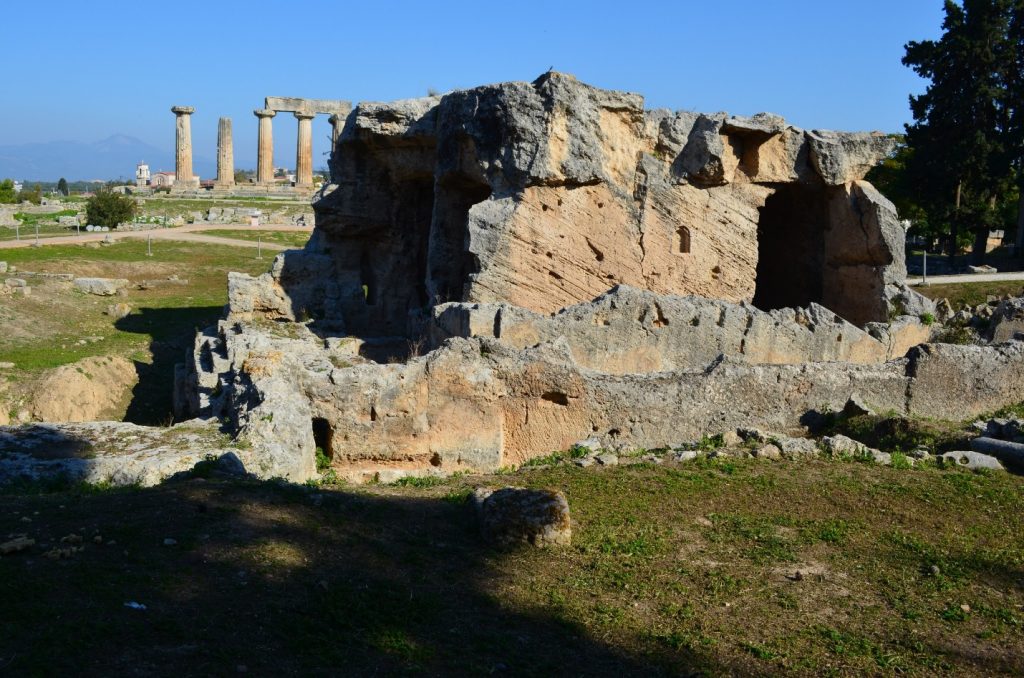
Ancient Corinth sits on a hill about halfway between Fortress Corinth and the bay that is now home to Corinth. In 400 BC the population of this city was 90,000. It was also renowned for its temple prostitutes, even though they would eventually be housed in Fortress Corinth which was also the home of the Temple of Aphrodite.
The Apostle Paul’s first visit to the city was around 50 AD. He resided in the city for at least 18 months. It was here that Paul met Pricilla and Aquila with whom he lived and with whom he worked as a tentmaker, supporting himself and his ministry work. Paul preached in the Synagogue here. While in Corinth the Apostle Paul wrote the Epistle to the Romans.
The leaders of the local Synagogue ultimately got angry with Paul and put him on trial before Gallio, the proconsul of Achaia, which is this geographical region of Greece. Gallio realized that this was a dispute between Paul and the Jews and he refused to rule on the matter. After the trial, according to the book of the Acts of the Apostles, Paul left Corinth and sailed for Syria. He took Priscilla and Aquila with him on that journey.
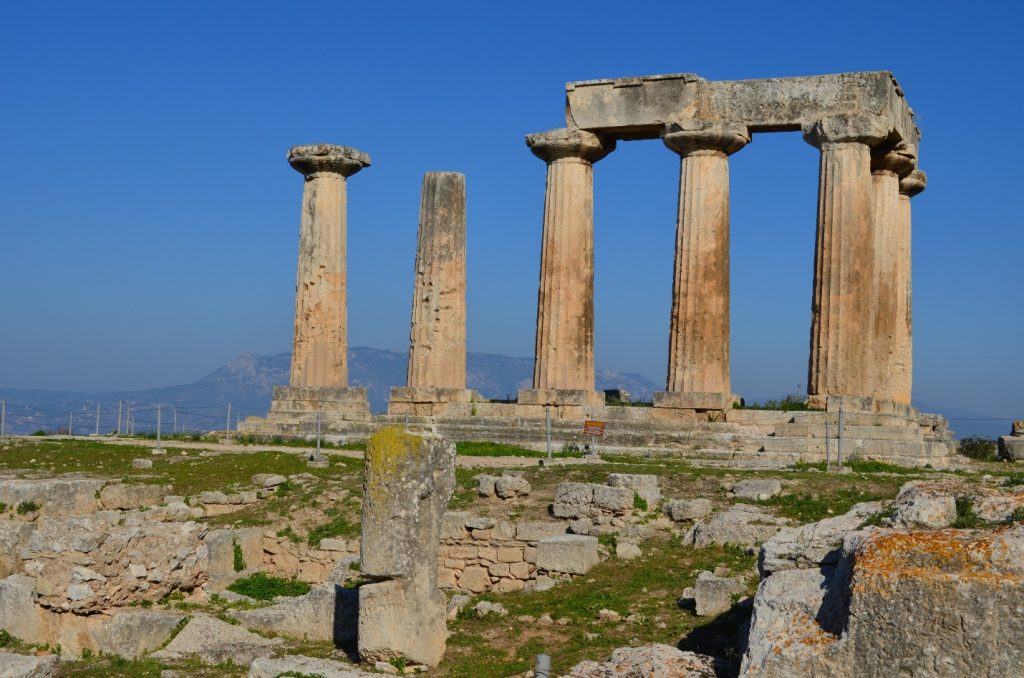
There is incredible history here, particularly the history from Biblical times. This city was important to the formation of the early church just based on the amount of time the Apostle Paul spent here.
I highly recommend you make a day of your time in the area, with half of it spent exploring the Ancient Corinth archaeological site.
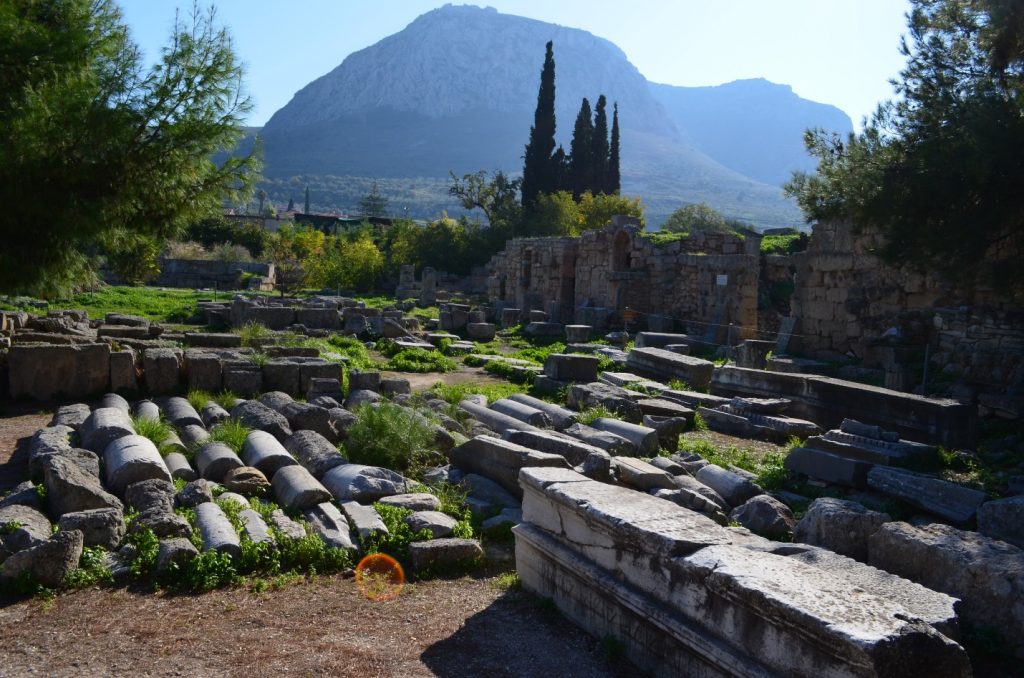
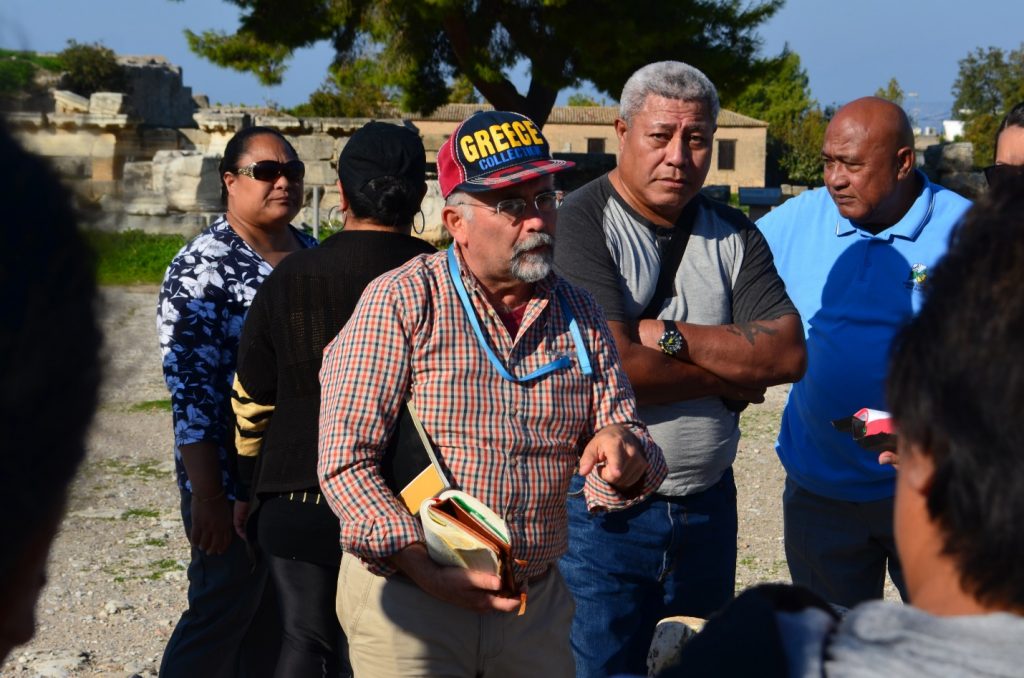
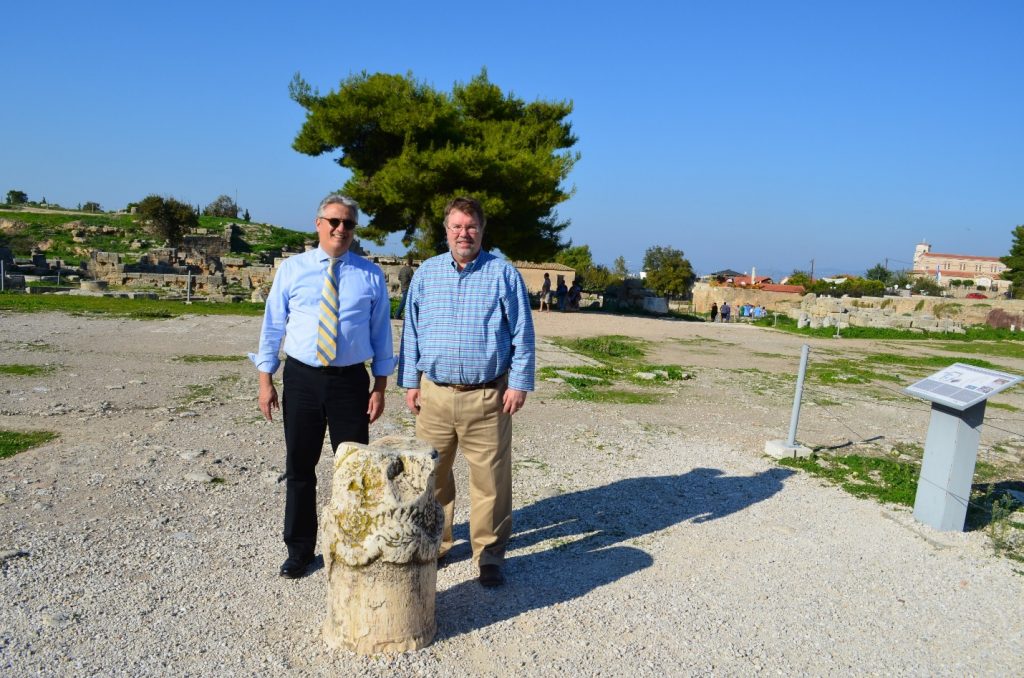
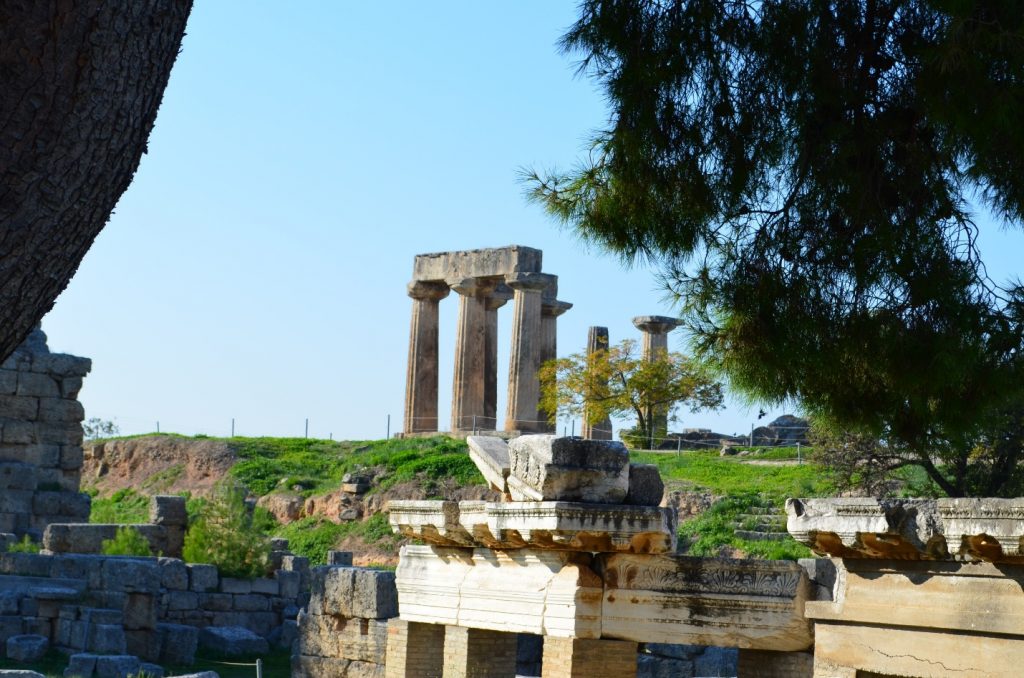
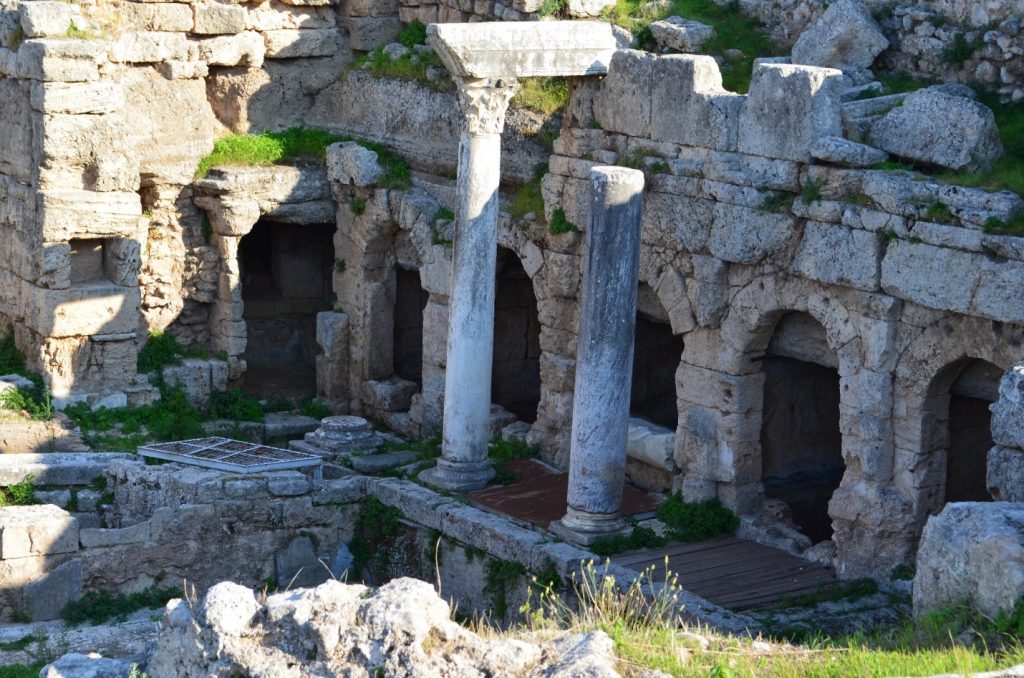
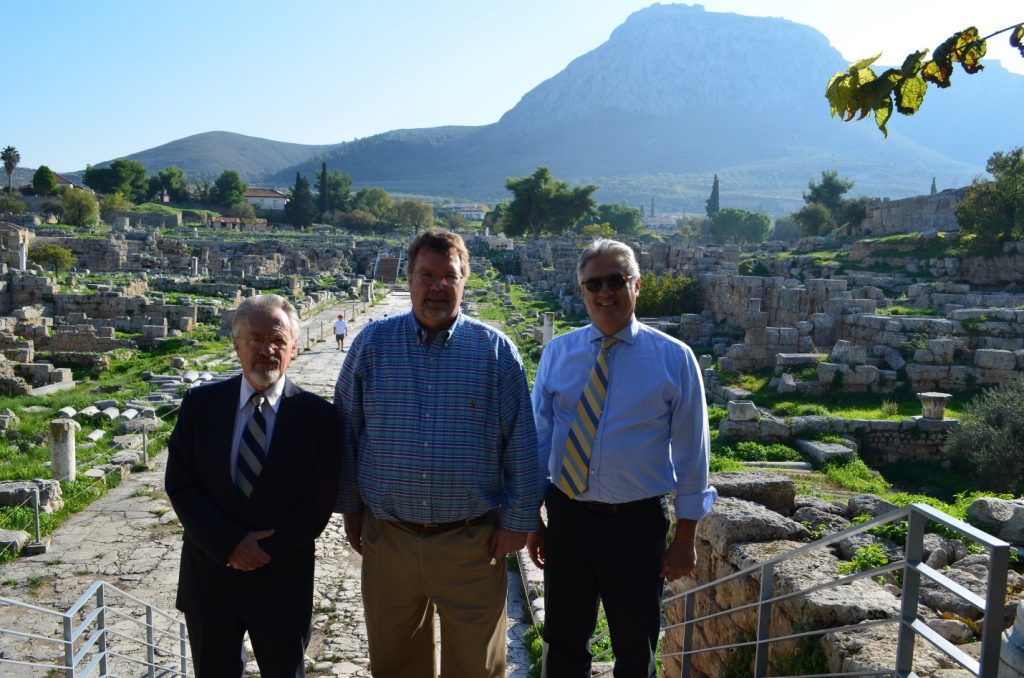
Once you have finished looking through Ancient Corinth, exit and turn back to the left, toward the large parking lot where you likely parked to enter Ancient Corinth. Turn to your right and look down the hill toward the Gulf of Corinth. On the far side of the parking lot is a pathway that leads down into another part of Ancient Corinth that is not included in the historical site. I do not know why that is, but I do know that this site is almost as good as the historical site, even though it is not as large. It is also a small hike, downhill, to get there. This site includes part of the ancient roads of Corinth that you can walk along and a recently discovered road marker that proves the discussion of activities in Corinth in the book of Acts are true.
You can walk right up to the marker, although it is set apart by a cordon of cable set up on metal posts to keep you from walking on it.
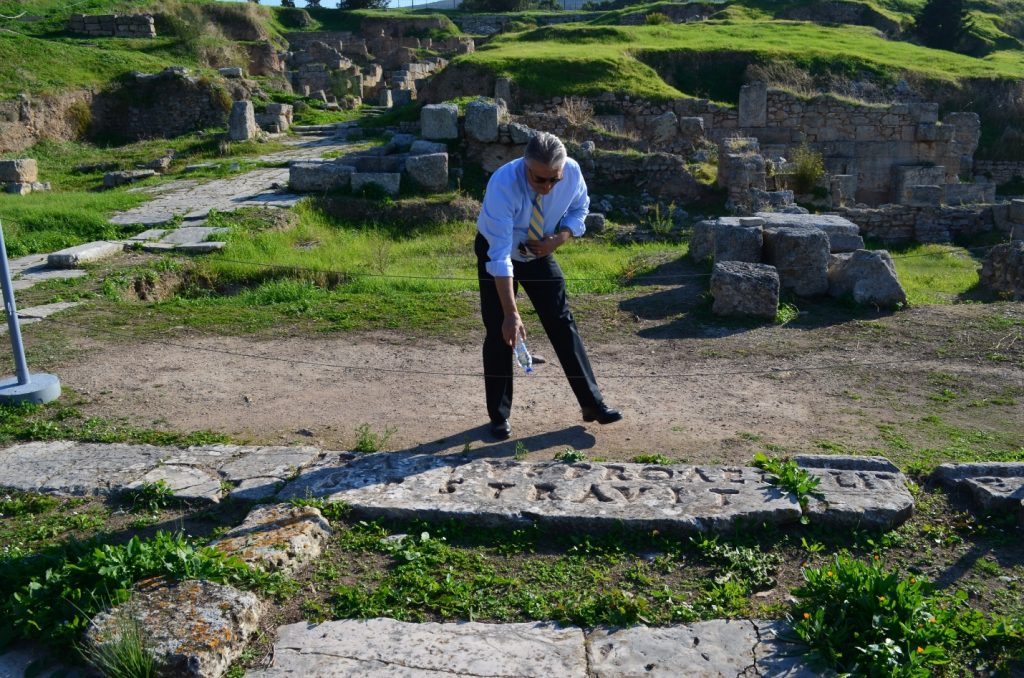
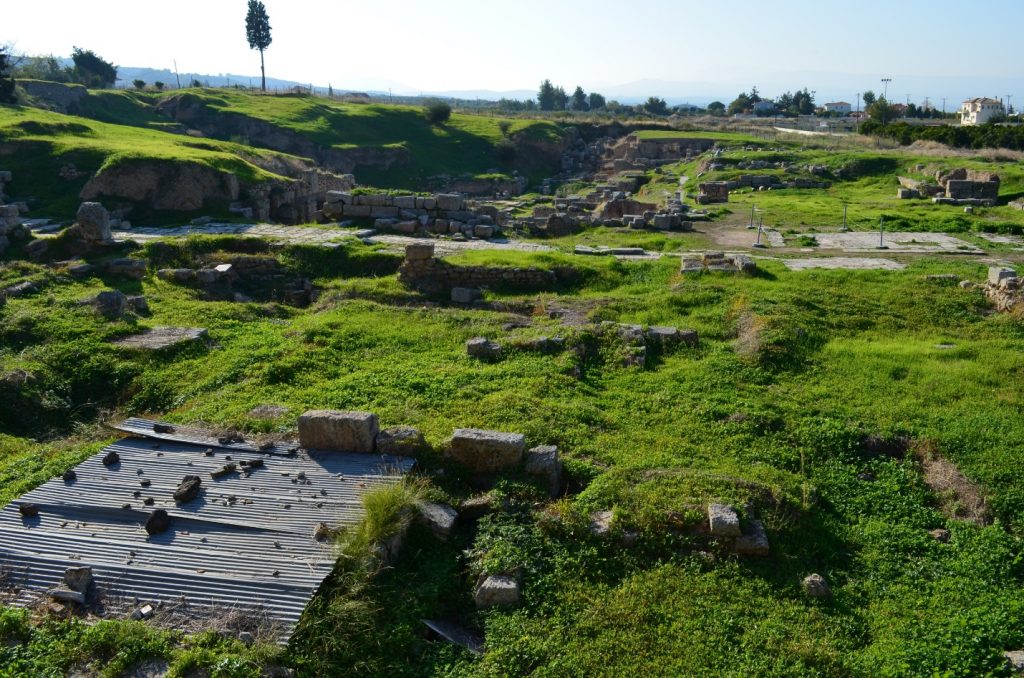
From here I recommend that you spend the remainder of your day in Corinth at Fortress Corinth, a short car or bus drive away from the Gulf of Corinth and up to nearly the top of the mountain. Once you get the parking area near the top of the mountain you will walk up some steep steps and through a gate into the outer area of the fortress. This is considered by many to be the best-preserved acropolis in Greece. It is certainly worth the climb.
The former Temple of Aphrodite was reinforced during the Crusades by armies from Europe. It has quite the history. I recommend you spend a couple of hours wondering through the fortress. You could easily spend a couple of hours just enjoying the view of the area from atop this mountain fortress. It was continuously occupied from ancient times through the 19th Century. It was part of the defense system of the Macedonians in the age of city-states.
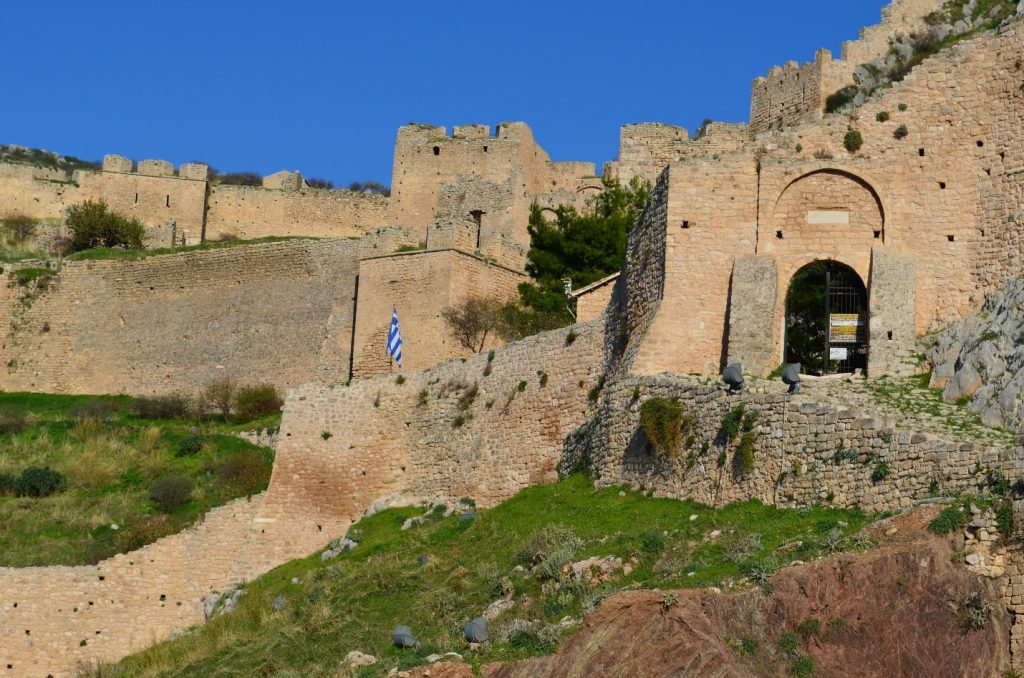
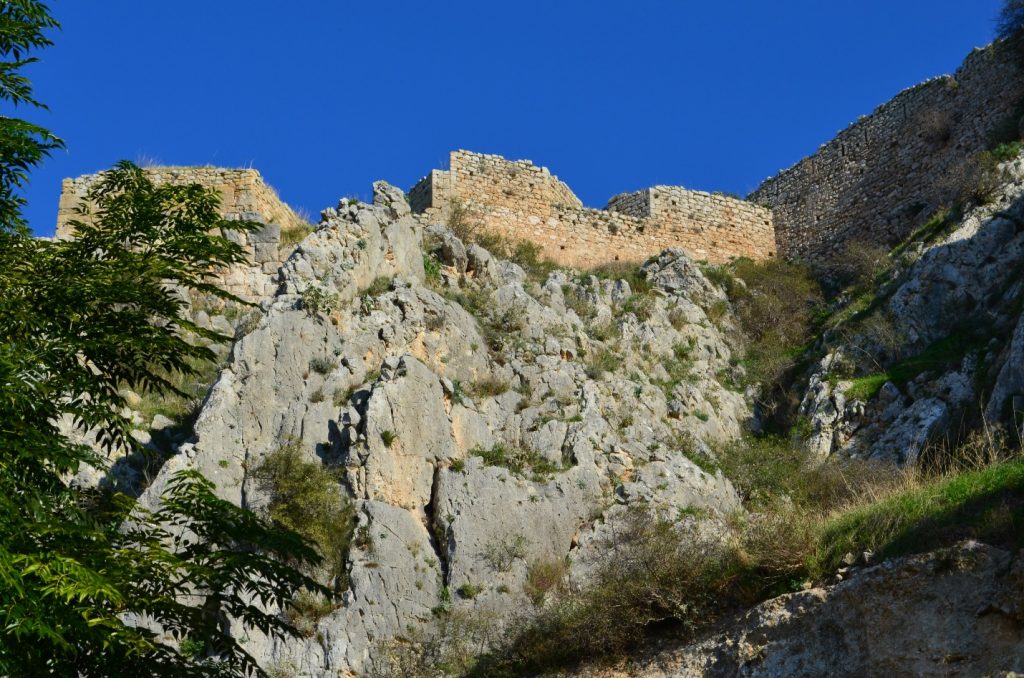
On your way back to Athens, you will pass over the Corinth Canal. This canal was first considered as far back as the 7th Century BC. It was also considered by Julius Caesar, but he was violently killed before he could bring the project forward. Finally, in 67 AD, the Roman Emperor Nero personally broke ground on the canal and removed the first basket load of soil. The Romans actually began working on the canal, digging trenches and drilling shafts through the rock to check on the quality of the rock. Nero died shortly after construction began. Around a tenth of the total canal was built at that time. Unfortunately, it was not until 1882 that the work on the canal was continued. The canal was finished in 1893 and is still used today, although most modern ships are too big to pass through it.
Walk out on the bridge, look down the deep shaft to the water flowing through the lockless canal. It is four miles from beginning to end.
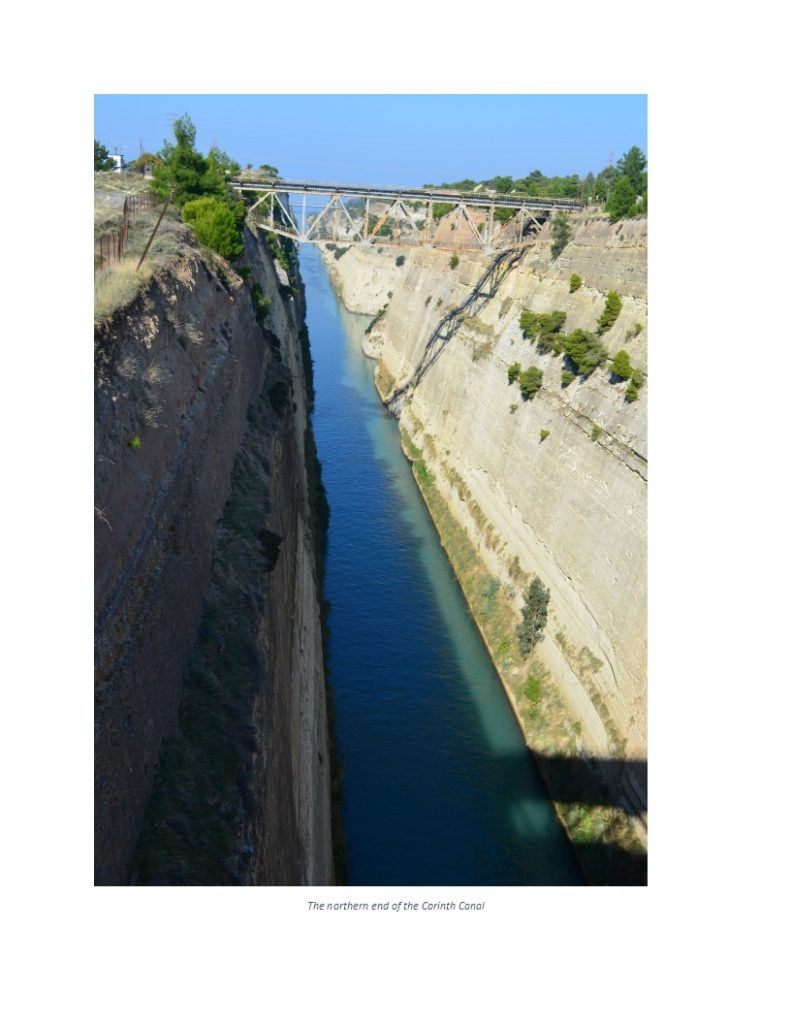
Corinth is the perfect day trip from Athens. Leave early in the morning, enjoy the drive through the Greek countryside and along the Greek coast. Tour Ancient Corinth, Fortress Corinth, and stop for a walk across the bridge to look up at the Corinth Canal. Then return to the comfort of Athens, or stay in the area as there is much to explore all around Corinth.
If you are thinking about traveling and would like some help, contact me at [email protected]. You can click here to sign up for our travel newsletter and to keep up with tours that we are currently planning. We can help you make memories to last a lifetime!

Leave a Reply